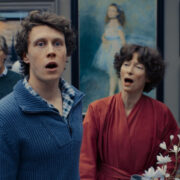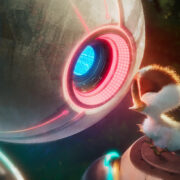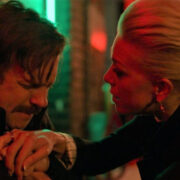A Conversation With Donna Zaccaro, Director & Producer Of TO A MORE PERFECT UNION: U.S. V WINDSOR
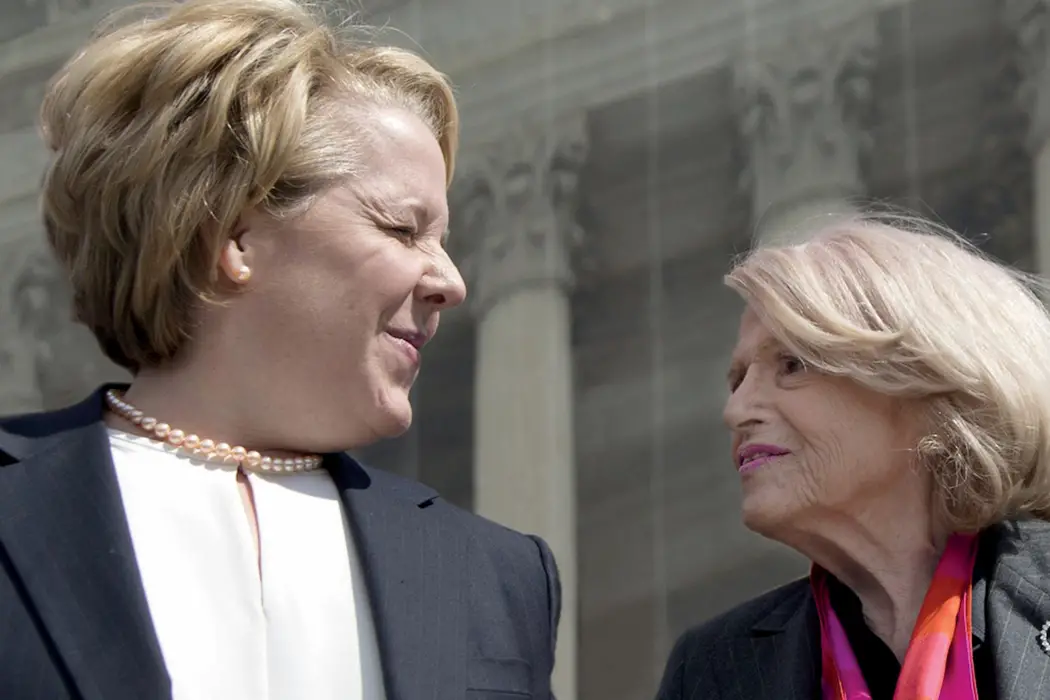
Tessa is a writer living in Boston, where she spends…
To a More Perfect Union: U.S. v. Windsor, Donna Zaccaro’s second feature-length documentary, charts the journey of Edith “Edie” Windsor as she moves through the Supreme Court, fighting for legal recognition of her marriage to Thea Spyer, her late wife. With the help of lawyer Roberta “Roby” Kaplan, Edie’s case leads to the 2013 overthrowal of the Defense of Marriage Act (DOMA), which had, since 1996, made same-gender marriage federally illegal. Beyond the case, Edie finds an extended family with Roby, Roby’s wife Rachel, their son Jacob, and Edie’s many fans.
Although Edie passed away in September of 2017, she is beautifully commemorated and celebrated in the film. Her life clearly encompassed a huge amount of love and history, and To A More Perfect Union does the same.
I was lucky enough to get on the phone with Donna Zaccaro to talk about the film. We chatted about her work telling women’s stories, the rapid shifting of our social landscape, and the importance of recognizing history. After discussing the film’s upcoming wide release (and after I confessed that watching it made me a little weepy), we delved into our conversation.
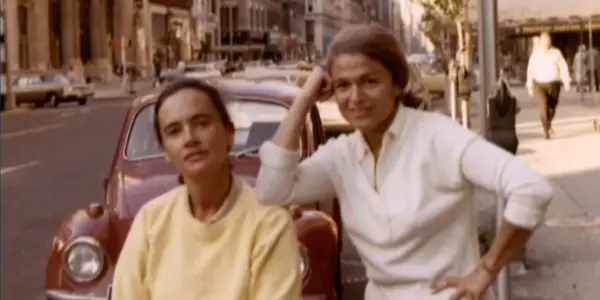
This interview has been edited for clarity and time.
Tessa Bahoosh for Film Inquiry: Can you tell me a little about your background and what drew you to documentary filmmaking?
Donna Zaccaro: So, I haven’t had a linear career path by any stretch, but my most relevant background is that I worked for ten years at ABC on The Today Show. I did pieces on education and human interest stories, and left to do similar, longer-form work. I generally see myself as more of a journalist than an artist, and I formed a nonprofit production company for this work. There isn’t really a business model for documentaries; they don’t tend to make money. That’s why I made the non-profit documentary company, Ferrodonna Features, to focus on stories about women–that’s our mission.
I’m always looking for stories about women’s issues and social justice, and for personal stories that tell a bigger story. This story in particular–I first saw Edie and Roby speak right after the decision, and I was just blown away. It was very much a David and Goliath story. You had this delicate-looking little old lady who was anything but, and who was ready to sue the government! Through Edie’s story, and Roby’s, too, I was able to tell the story of gay rights and gay history.
I’m glad you brought that up, because one of the things that makes contemporary documentaries on LGBT issues so interesting is the fact that so much history has been suppressed and lost. It feels like you’re in this position to make sure history isn’t forgotten.
Donna Zaccaro: Oh, definitely. And I think you have to put any story like this into context, and show how it wasn’t so long ago that gay people were legally persecuted. Younger audiences don’t always know that. Certainly there are some people who are still persecuted today–trans kids in school, for example.
For a story like this, you have to show the history, because it determined how Edie and Thea lived their lives. Edie had to move to New York City, as she said, to allow herself to be gay. The idea that they would get married was so shocking, and so much more an act of courage, or maybe an act of imagination, because they had to remain closeted.
That’s why she had to wear the diamond brooch instead of a ring. You have to put that in context. One of the things I felt I had to show was the political and social shift that took place; it seems, to straight audiences, to have happened so quickly, but this shift actually took so many events.
That really struck me because it does feel like people move through issues really rapidly–everyone gets engaged in new conversations, so recent history starts to feel ancient very quickly. I loved the part in the film when Rosie O’Donnell describes getting excited about seeing two teenage girls holding hands, and they’re like, “What’s the big deal?” It’s funny because I was out in high school, and it did sometimes feel that way.
Donna Zaccaro: Can I ask how old you are?
Yeah, I’m 23.
Donna Zaccaro: I have a 21-year-old. Both my kids grew up with kids who had two moms and two dads. But then again, we’re in New York. It never occurred to them that that was anything but normal, or that there was anything unusual or unique about it.
Kids your age need to understand that this was just not that long ago–it was happening when they were born, even, because my son was born in 1996, and that’s the year they passed DOMA. But by the time my son was in preschool, he had kids in his class with two moms and two dads.
Yeah. DOMA can feel so long ago, which makes it’s shocking to see this history illustrated within one person’s life.
Donna Zaccaro: That’s also why I wanted to bring in Roby and Rachel’s whole life. First of all, Roby didn’t feel she could come out until she was in law school, but then also the discrimination they went through when their son was born–that was just shocking to me, and these were high-powered lawyers in New York!
I was wondering about Roby and Rachel–was it always the plan to include them, or did that aspect of the story evolve?
Donna Zaccaro: Well, what you do when you tell any story, or at least what I do, is start with your research, then figure out how you want to tell the story, and what pieces to bring in. I see it as almost a collage, because you have to bring in different levels of the story that are relevant. I learned about Thea and Edie’s love story, and that was so important. It’s what Roby did in the case, and what I tried to do in the film: to show, with their story, that love is love and family is family.
The reason I also included the whole piece about Jacob, was that these were the unintended consequences of bringing the case. Edie brought the case as a quest for dignity and recognition for her marriage. But in the course of that, she also gained a family. As she says, she doesn’t know what it’s like to be a grandmother, but she certainly knows what it’s like to love this kid. And that’s very beautiful and sort of tragic. You can look in her eyes in those scenes and see how much she loves that kid, and what a wonderful grandmother she would have been.
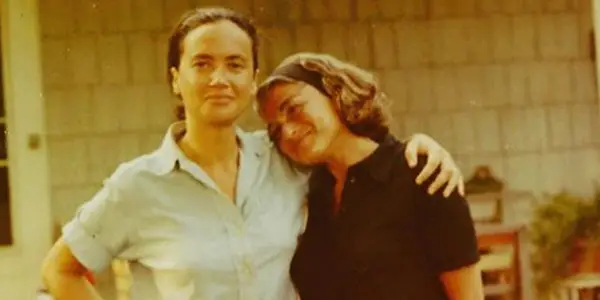
Could you tell me a little more about Edie? She seemed so graceful and at ease with becoming a public figure, especially for someone who had to, you know, be private by necessity for so long. What was it like working with her on this?
Donna Zaccaro: She was very busy. She was like the Eveready Bunny. She had events going on all the time; things she was involved in; and incredible energy. Which was part of the reason it never occured to me that she was going to die. She was 88 years old, and had medical issues and was actually quite frail, but you thought she would just continue on.
Did she get to see the finished film?
Donna Zaccaro: She did. She saw it twice and was thrilled with it, and she was hoping to come to the premiere at Woodstock in October. She died a few weeks before that. But she saw it twice. I brought it to her apartment once, and she then asked to show it again to her–I don’t know if you know, but she got remarried.
I didn’t know that!
Donna Zaccaro: Yes, she found love again. She was obviously a person who really believed in love. I decided it wasn’t really relevant to the documentary, but her widow is an incredible woman too. She’s really devoted herself to Edie’s legacy and making sure it lives on. She’s come to almost every screening. She came to the premiere twice, and she’s come to almost every film festival. She’s traveled to be at screenings.
That’s so lovely. Was it Roby who, toward the beginning of the movie, mentioned not having an image of a successful adult gay relationship to look up to?
Donna Zaccaro: That was Rosie, actually.
Right! That part really hit me–it’s so true. It’s wonderful to hear about Edie finding love again, with that in mind.
Donna Zaccaro: You know, there are several points in the film that, no matter how many times I see them, I still get choked up over. One of those is the decision, obviously, and when Rachel talks about realizing what it meant for her children and their family.
Anyway, the other point is when Rosie talks about how she has felt less than, and how the decision overwhelmed her because it restored, or gave her, dignity. This powerful woman who still felt, her whole life, that she was less than? Though the film obviously resonates with LGBTQ audiences, I hope it gets a wider viewing with straight audiences who don’t necessarily know what that’s like.
That can even be true of young LGBT people. You don’t necessarily know your own history.
Donna Zaccaro: Yes. I have friends who are LGBT who don’t know the history, and of course LGBT friends who do–but straight audiences don’t necessarily know. And that was why I was particularly interested in this story. Ultimately, with all my films, I hope they will be distributed to educational audiences. I would love to have this shown in Women’s Studies and Political History courses.
There was one other part of the film I was really curious about. You include an interview with Mat Staver, the founder and chairman of Liberty Counsel, who challenged Edie’s case and LGBT people’s right to “redefine marriage.” What was the thinking behind including his voice?
Donna Zaccaro: Well, as you saw just this past week, in the cake decision, their argument is still his argument; that [gay marriage] is restricting religious freedom. It’s really the only argument left. I felt it was important to have an intelligent and articulate oppositional voice in there. You have to remember that in 1996, DOMA passed overwhelmingly in Congress, and our liberal president, who was a big supporters of LGBT rights, signed it into law. Mat, to his credit, was the only oppositional voice who would talk to me.
I tried to get Paul Clement, who was honorable in his own way. He was representing BLAG (the Bipartisan Legal Advisory Group), and his law firm was telling him to drop the case because they got such negative press, until he wound up leaving the firm. There were ten lawyers who signed the amicus brief, and none of them would talk to me. No one from DOMA would talk to me either, which is why I put in all the archival footage. No one on the oppositional side wanted to talk, because it’s so unpopular now. So for that, actually, I give Mat Staver a lot of credit.
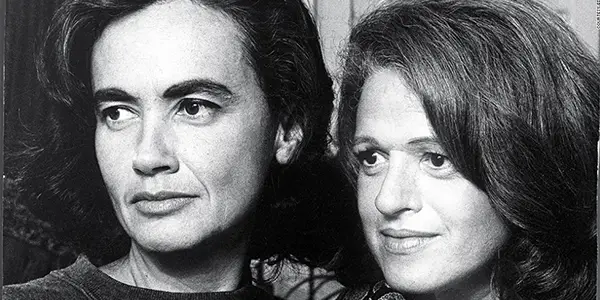
We’re nearly out of time, but I wanted to quickly ask–what’s next for you?
Donna Zaccaro: More films like this! (Laughs) I’m researching for a couple of films, and will then start trying to raise money for them. I can’t really talk about any of them yet, but they will be consistent with what I’ve done so far–still about women, and still about social justice.
Film Inquiry would like to thank Donna Zaccaro for taking the time to speak with us.
For more information about To A More Perfect Union: U.S. V. Windsor, please check the film’s website. For upcoming screenings, check here.
Does content like this matter to you?
Become a Member and support film journalism. Unlock access to all of Film Inquiry`s great articles. Join a community of like-minded readers who are passionate about cinema - get access to our private members Network, give back to independent filmmakers, and more.
Tessa is a writer living in Boston, where she spends her time eating falafel and falling asleep on public transportation. Her greatest personal goal is to learn how to allow someone to dislike horror films without trying to convince them they just haven't seen the good ones yet.

